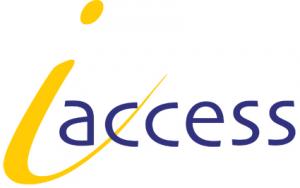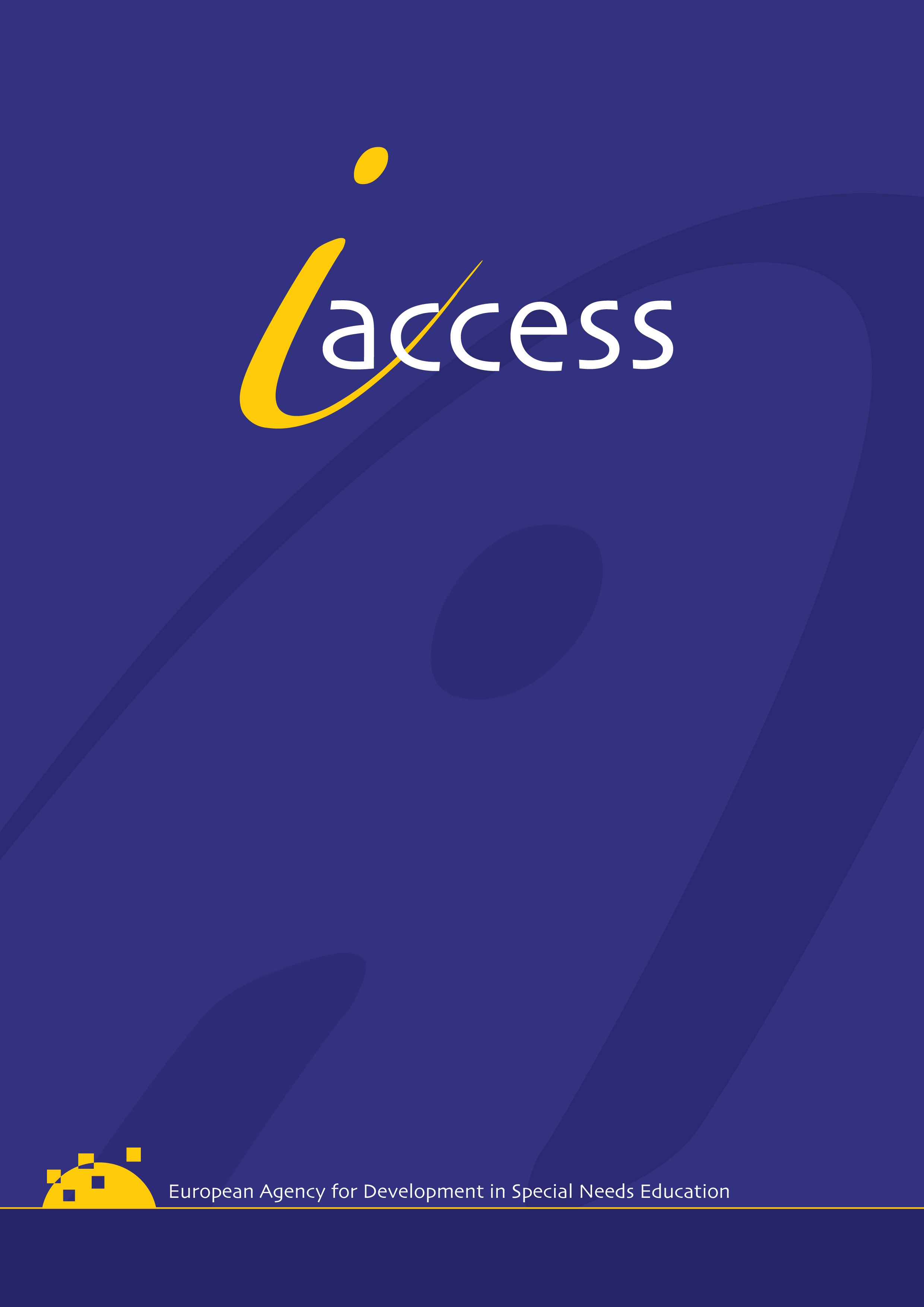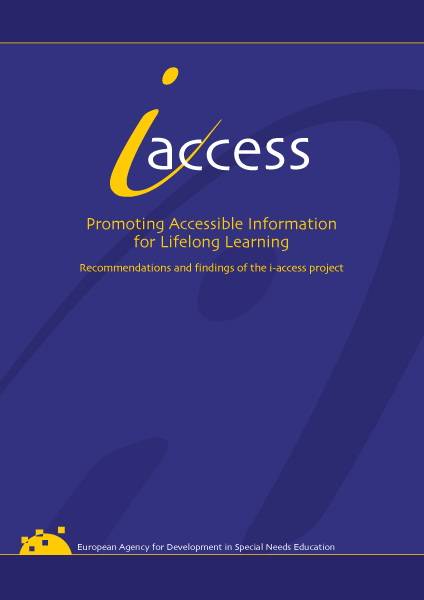The Recommendations for Promoting Accessible Information for Lifelong Learning draw from a range of information sources collected and analysed throughout the i-access project activities, including:
- A review of European and international policy and recommendations on accessibility;
- A country survey on accessibility policy and implementation;
- The i-access conference inputs and conclusions.
The final project recommendations were drafted and consequently endorsed through a process of re-drafting based on feedback from project experts, the Project Advisory Group members, Agency member country ministerial representatives, as well as representatives of all key stakeholder organisations involved in the conference and project activities.
These recommendations are targeted at policy makers for lifelong learning and ICT, working at the European, national or lifelong learning organisational levels, and are underpinned by a set of Guiding Principles.
Further details on the information resources leading to the recommendations, as well as further information on the recommendations and guiding principles can be found in the full report Promoting Accessible Information for Lifelong Learning.
The recommendations and the guiding principles have been summarised in a flyer, available in 21 official Agency languages.
-
Raising awareness about accessible information for lifelong learning as a rights issue.
Policy makers, organisations and professionals in lifelong learning, ICT specialists, people with disabilities and/or special educational needs and their families and support networks should be made aware of learners’ rights to accessible information provision.
-
A multi-stakeholder approach based upon co-operation and information exchange should be taken.
Highly specific policies focused upon single interest group issues alone cannot achieve the provision of accessible information for lifelong learning. Policies must be developed and then implemented based upon the principle of a multi-stakeholder approach.
-
Issues around accessible information provision should be covered in the education of all professionals involved in lifelong learning.
ICT can contribute to effective access to learning opportunities only if all professionals in lifelong learning are educated in the use of ICT as a tool to enable equal opportunities in education.
-
Issues around accessible information provision should be covered in the education of ICT and media professionals.
Educating media and ICT specialists on the impact of disabilities and/or special educational needs on people using ICT, it is possible to develop more accessible technology from design to production and avoid later work to make the finished product more accessible.
-
Accessibility should be a guiding principle for procurement of all goods and services.
Goods or services should not be purchased from organisations that do not fully account for accessibility issues.
-
Research should be promoted in order to develop an evidence base for future policy design, implementation and evaluation.
Long-term research efforts in this area should inform policy-making, monitoring and evaluation but - more importantly - should aim to identify areas for future development and work.
-
Compliance to policy should be systematically monitored.
Monitoring of compliance can only be encouraged at present, but should be extended. Compliance with accessibility policy is monitored on an international level for signatories of the UNCRPD, however currently not all countries provide these annual reports. In the long term monitoring of compliance to accessibility policy should be mandatory at the National level.
For each of the seven recommendations issues of applicability to three possible policy levels – the European, national and organisational – are presented within the project report.


